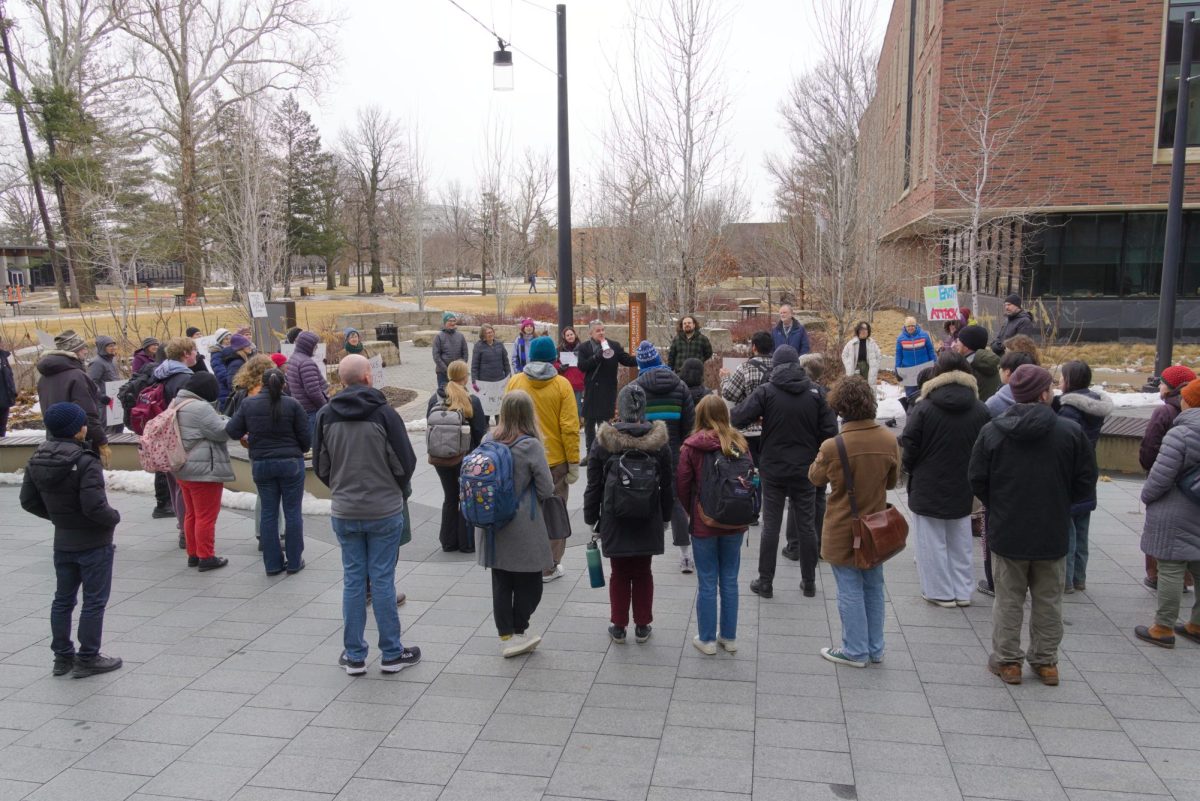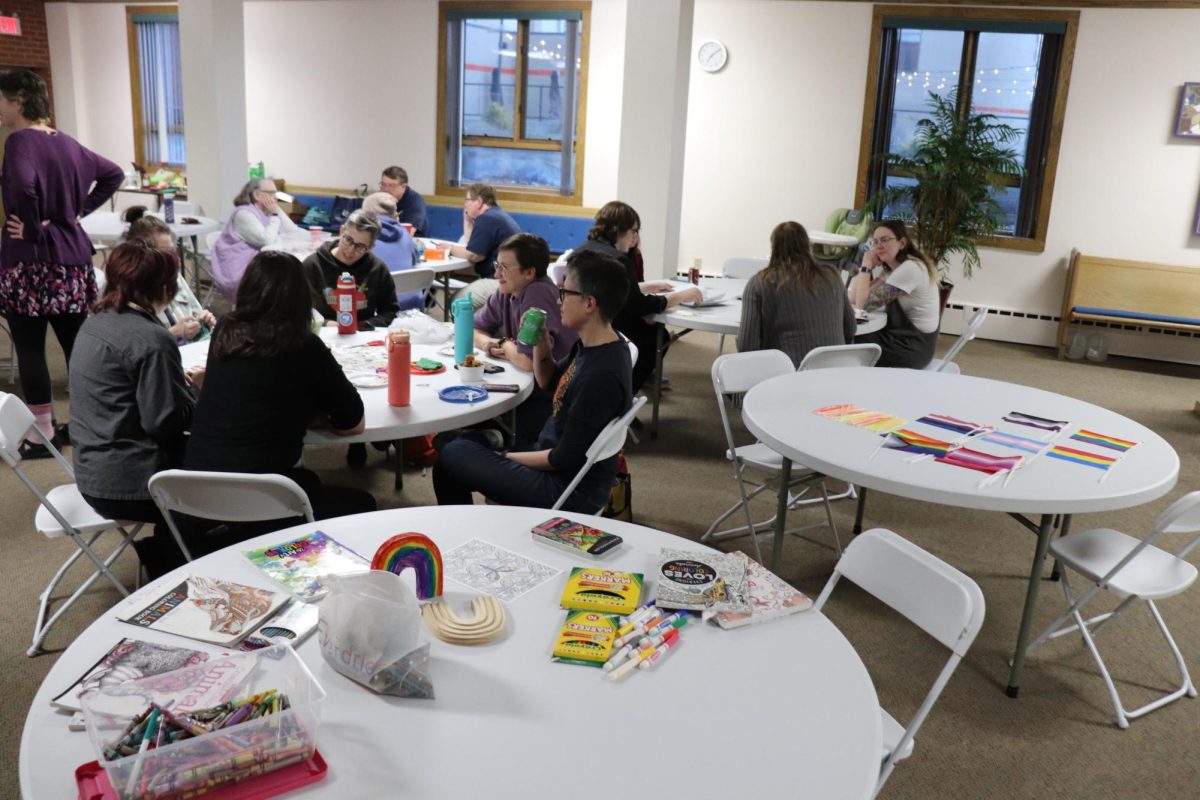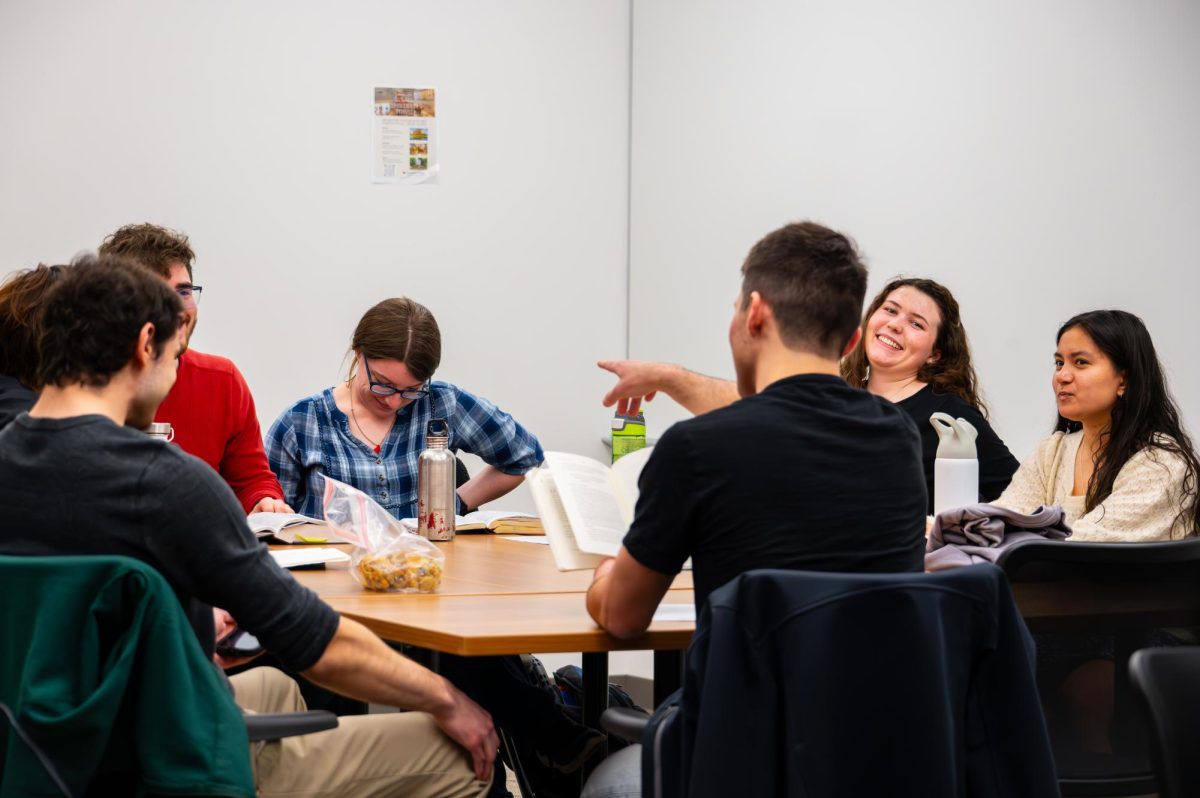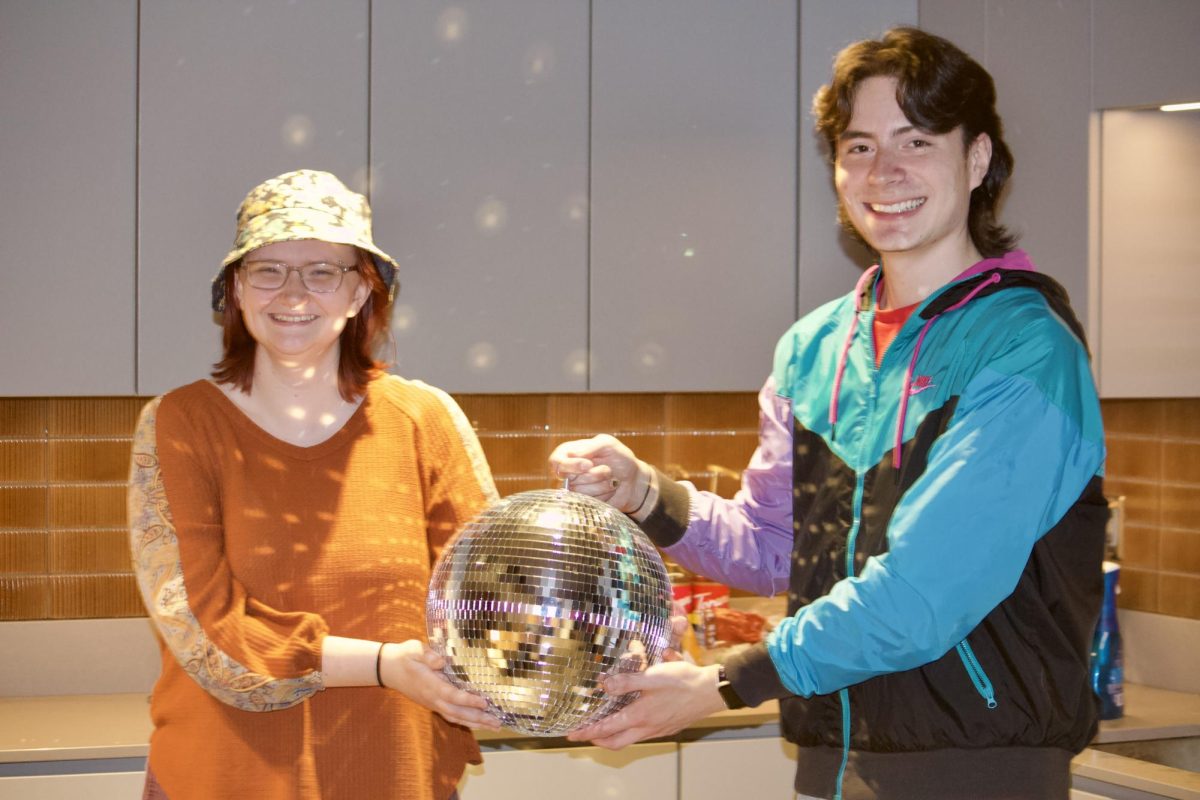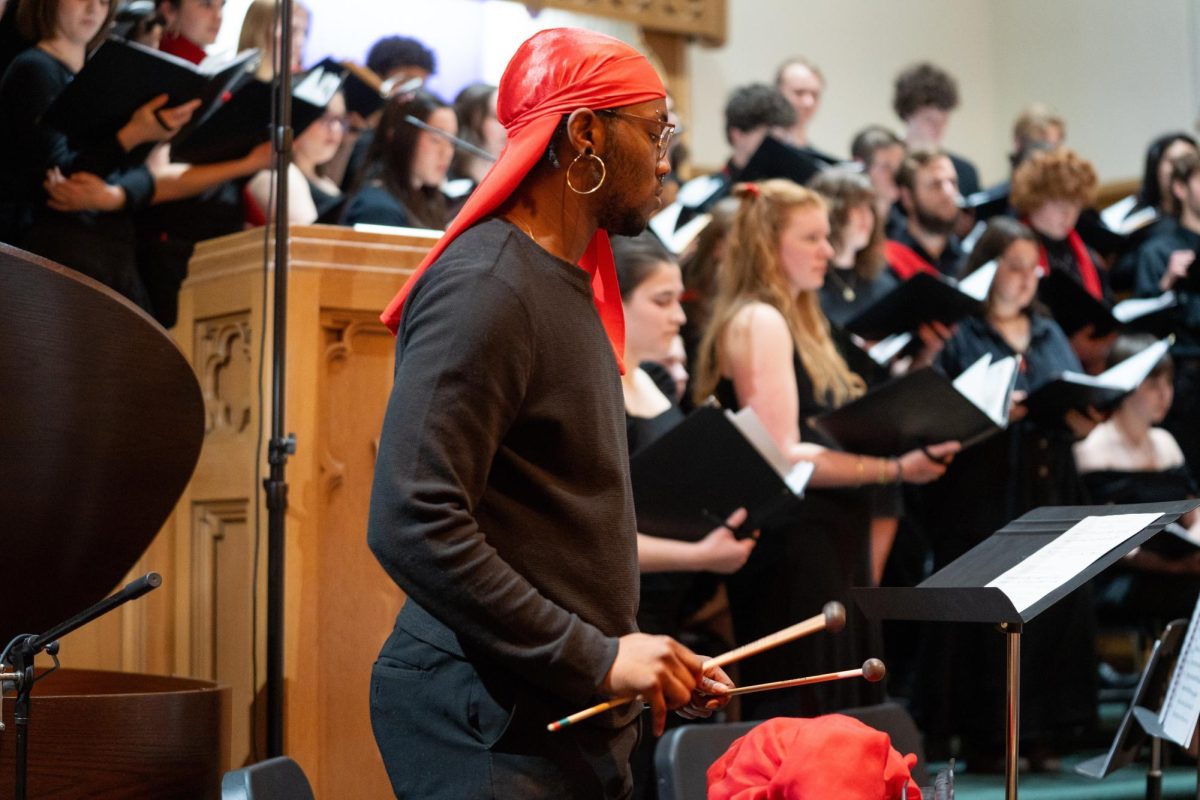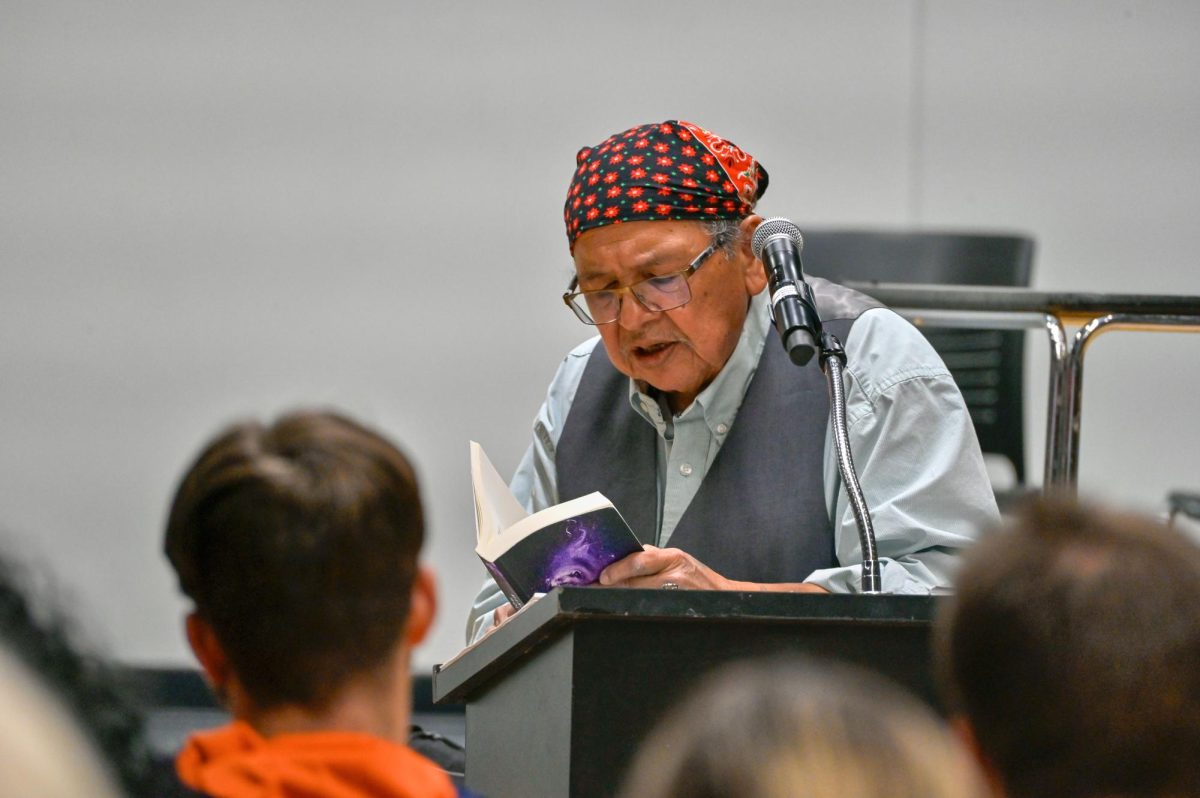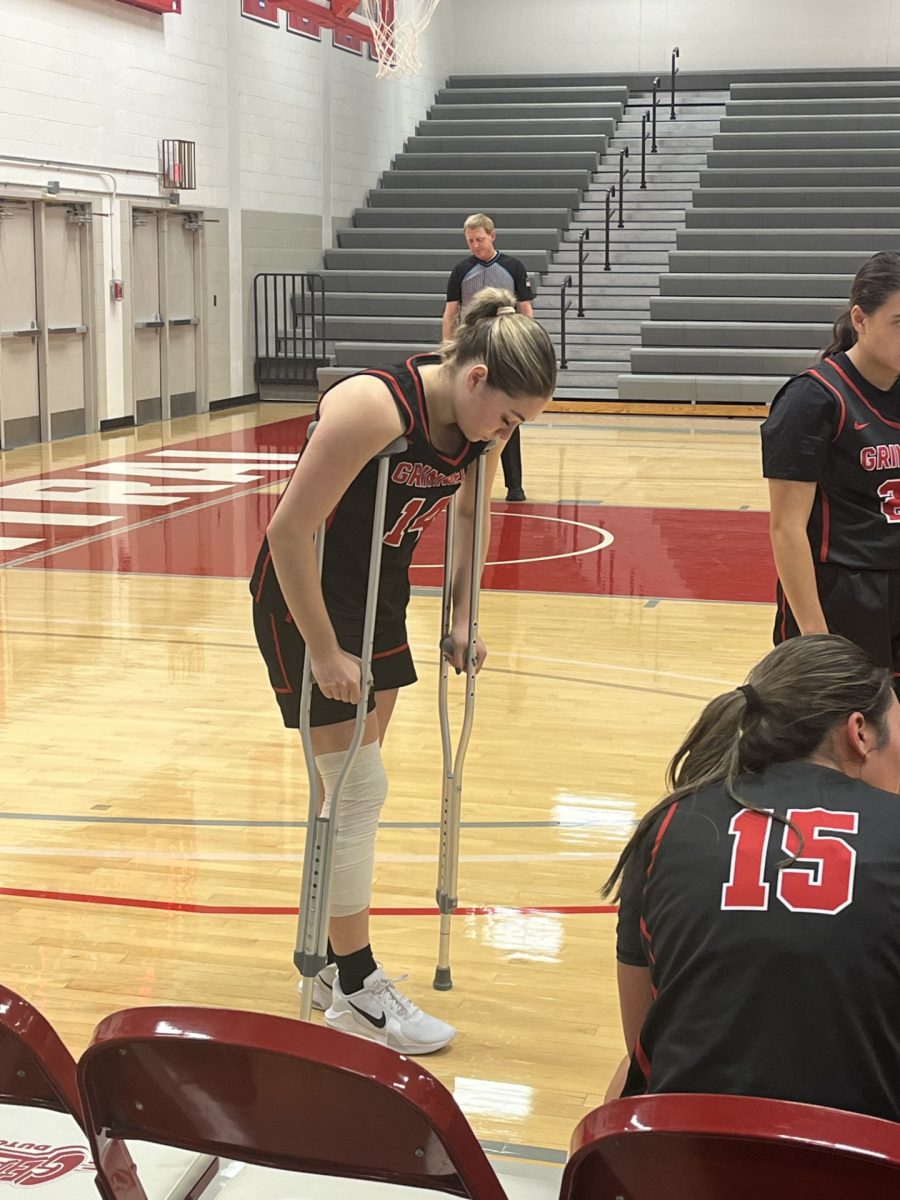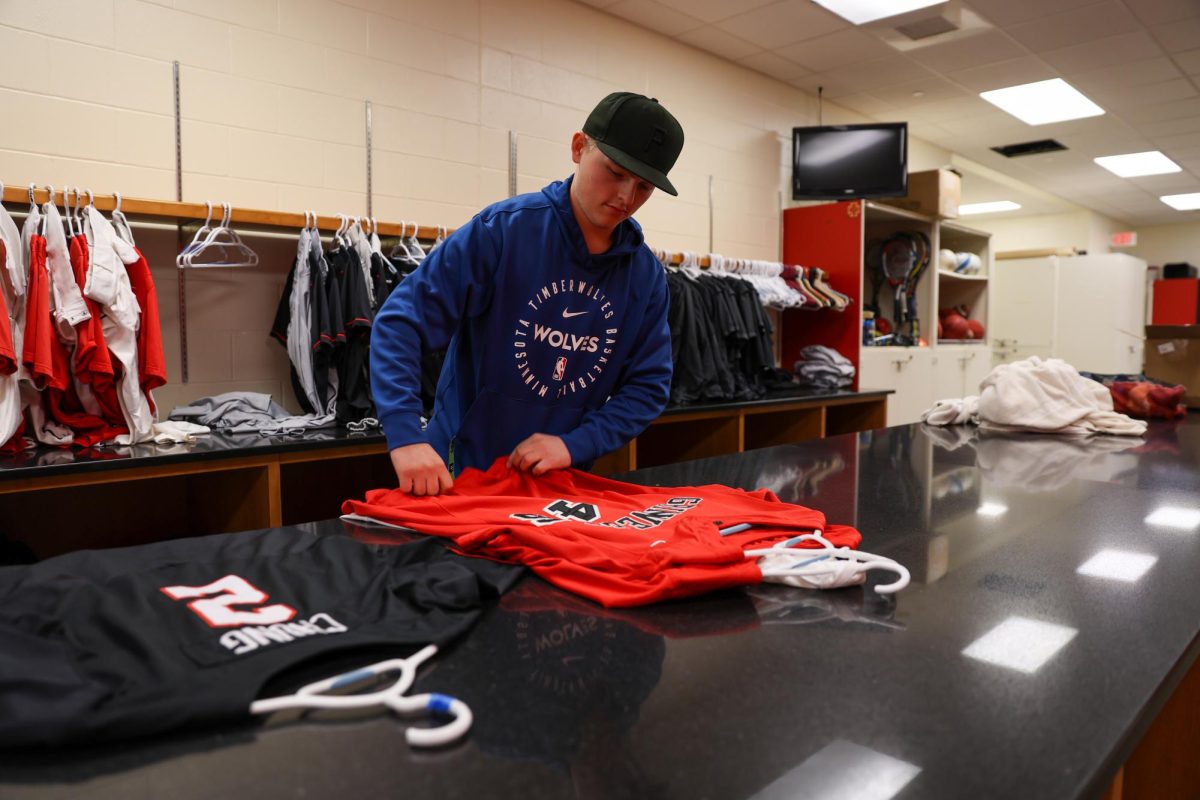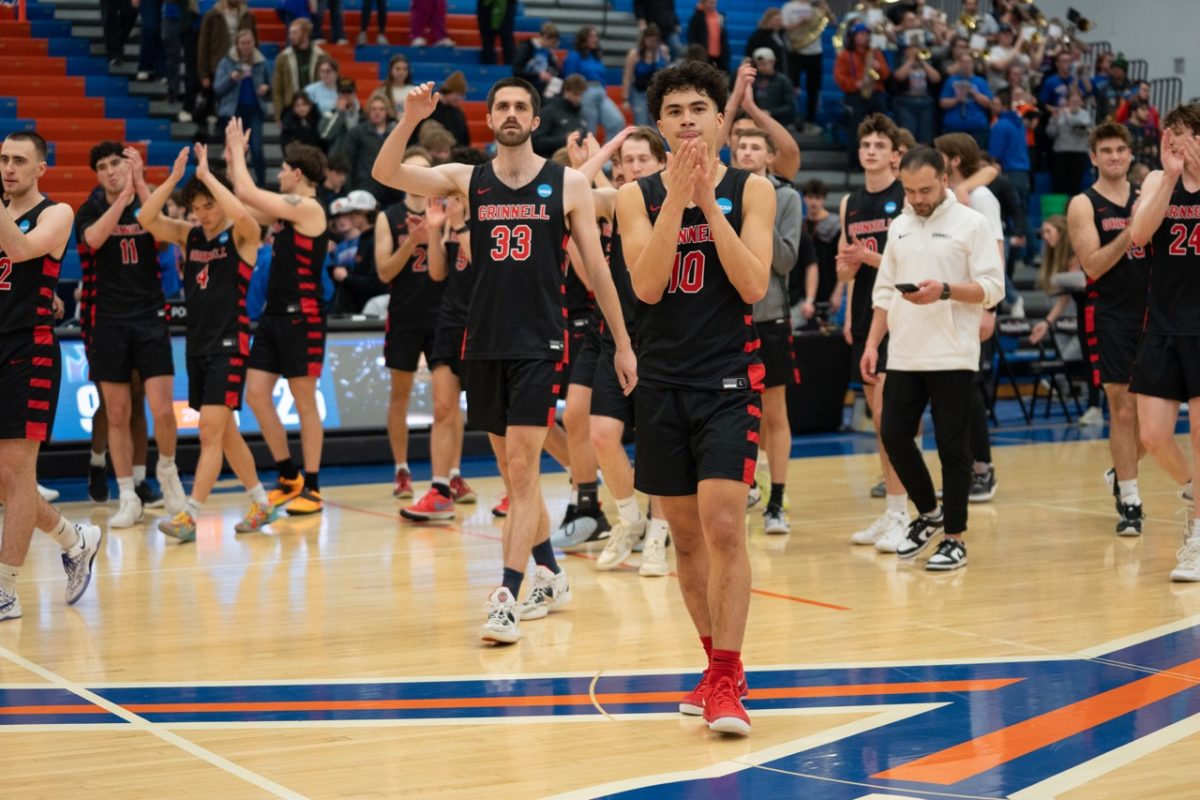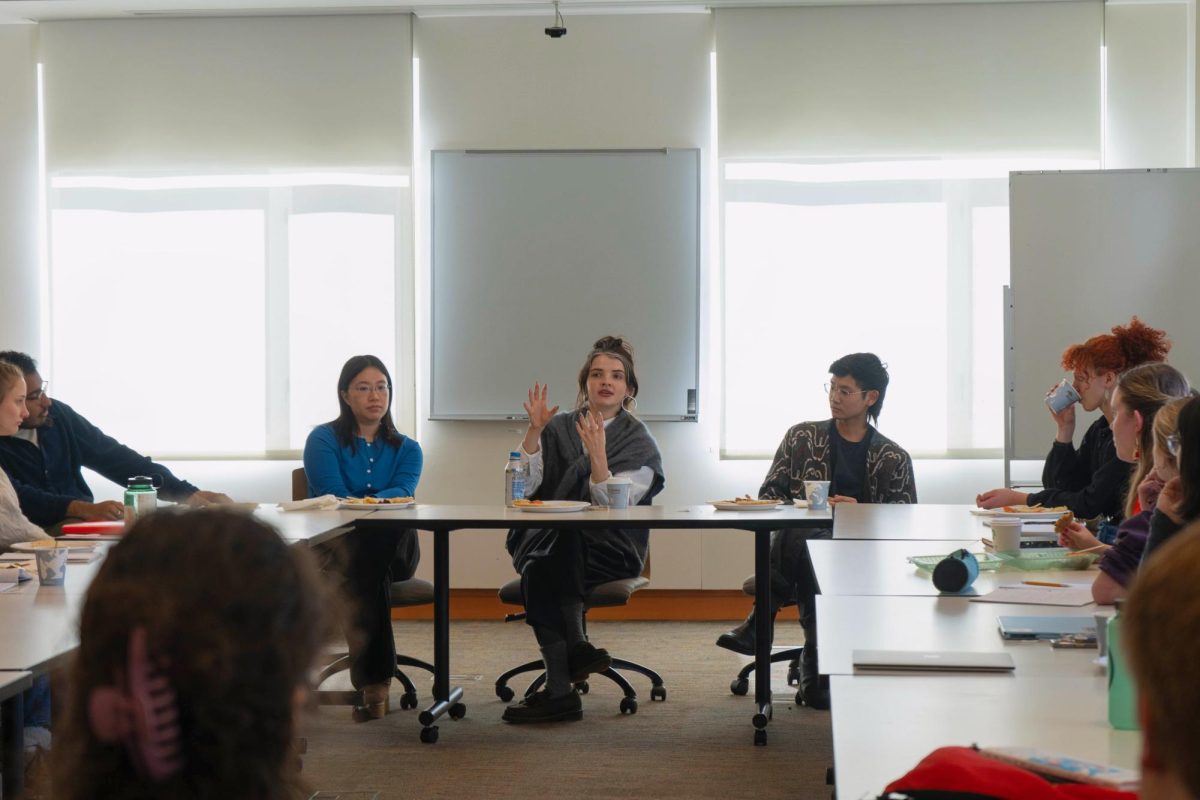By Chloe Wray
wraychlo@grinnell.edu
After a semester of learning theory and technique, the nine students that comprise Craig Quintero’s 200-level theatre and dance class, “Directing,” will apply what they have learned in individually-directed one acts.
The nine acts range from a story of a woman emerging from a 29-year-long catatonic state and interacting with her doctor and sister, to a comedy about a man teaching classes in a fake language he made up as a scam only to fall in love with a young woman who is able to learn the language, to an abstract piece on the different stages of relationships women have with their bodies.
Whether it be in acting, tech or film, most of the class has a background in theatre. However, the course provides a first chance at directing for all but one or two students.
“Acting, you walk in and someone is going to do the lights, and that’s really cool, and someone’s producing it, but when you’re the director you have to call who’s going to do the lights or find someone to do costumes,” said Molly Stone ’20, a member of the class. “With directing, you’re leading it, and if you don’t take initiative with your own show, no one is going to.”
Unsurprisingly, this new role also presented challenges for the directors. Class member Lukas Resch ’19 cited the biggest challenge as “with all the freedom you’re given, staying diligent to honoring the play and making sure you’re utilizing the actor’s time and balancing all those deadlines.”
“The biggest challenge of being a director is knowing what you want. You can’t just go back and forth or else the actors are confused,” said Sooji Son ’18, who is also in the class. “We all come to class and sit in a circle like a support group and talk about what went well in our rehearsals, what didn’t go so well, and we’re all just there to support one another. The camaraderie we have is what I think is the best part of the class.”
Stone did not feel as if the class presented a “right way” of directing. In the spirit of most things Grinnell, however, it prioritized collaboration and understanding for all involved in the process as opposed to dictatorial directing.
Stone felt as if the directors sought to “field a space for emotion, which all of us wanted. We wanted the [actors] to grow,” adding that growth was an integral part of the process, and “sometimes you get wrapped up in the end goal, like we have to put on a play, but ultimately I’ve realized that the process is exciting and that’s where I input most of my time.”
This class, like many offered by the theatre and dance department, acts as an outlet for self-expression above all else, which is clearly demonstrated by the individuality of each play and its respective director.
“Getting to be in charge of my own creative project is really, really fun. The teamwork and the group dynamics that it takes to be a director is what I love most about the process,” Resch said.
A fondness for the collaborative process the class demands of its members is a sentiment Son seconded.
“Creating something that’s ours with my actors, and the lighting designers and everyone, seeing how everything is put together, I think that’s the best part of directing,” she said.
The one acts will be performed Dec. 1 through 3 in The Wall in the Bucksbaum Center for the Arts. On Friday from 8 to 10:30 p.m. and on Saturday from 2 to 4:30 p.m., half of the class’ pieces will be performed, and then on Saturday from 8 to 10 p.m. and Sunday from 2 to 4 p.m., the other half of the directors will be showcased. There will be no tickets available ahead of time, and seats will be first come, first served.
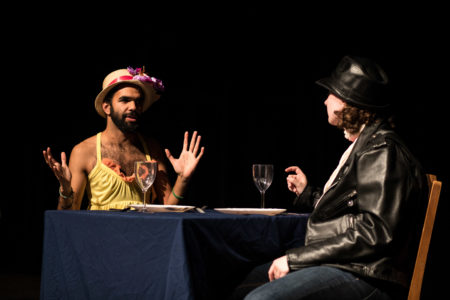
Photo By Helena Gruensteidl



